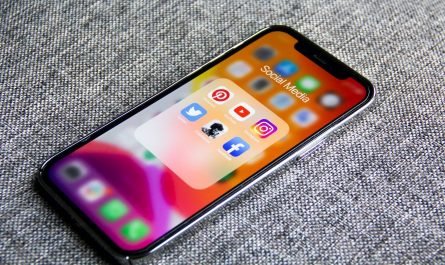When searching for a new smartphone, the vast array of options can be overwhelming. With countless models boasting unique features and specifications, determining the essential factors to consider when selecting a device can be challenging. To simplify the process, we have compiled a list of five must-have smartphone features to help you make an informed decision. By focusing on these key features of smartphones, you can ensure that your new device meets your needs and provides a seamless, enjoyable user experience.
Buy Airtel Postpaid with exciting benefits!
Impressive display and resolution:
One of the most critical factors to consider when selecting a smartphone is its display quality and resolution. A high-quality display will not only enhance your viewing experience but also affect the device’s overall performance. When evaluating a smartphone’s display, consider the following aspects:
Screen size: Choose a screen size that suits your preferences and needs, whether it’s a compact device or a larger screen for multimedia consumption. It is important to choose the right size of the mobile device that matches with your comfort and preferences while making phone calls, watching movies, and doing other activities. Explore our website to learn more about our prepaid and postpaid SIM card plans.
Resolution: Opt for a smartphone with a high-resolution display, such as Full HD or higher, to ensure crisp, clear images and vibrant colours.
Display technology: Consider the type of display technology used in the device, such as LCD, OLED, or AMOLED. Each technology offers distinct advantages and drawbacks, so research which one best suits your needs.
Also Read: How to Turn ON Mobile Internet Data on a Phone?
Reliable battery life:
A long-lasting battery is a crucial smartphone feature, as it dictates the device’s usability throughout the day. When evaluating a smartphone’s battery life, consider the following:
Battery capacity: Opt for a device with a high battery capacity, typically measured in milliamp-hours (mAh). A higher mAh rating indicates a larger battery capacity, which generally translates to longer battery life.
Fast charging support: Ensure that your chosen smartphone supports fast charging technology, allowing you to quickly recharge the device when needed.
Power-efficient processor: A smartphone with a power-efficient processor can help optimise battery life by managing power consumption effectively.
High-quality camera:
A high-quality camera is an essential feature for many smartphone users, as it allows you to capture memories and share them with friends and family. When assessing a smartphone’s camera capabilities, consider the following:
Megapixel count: While a higher megapixel count can indicate better image quality, it is essential to remember that other factors, such as sensor size and aperture, also play a significant role in the overall performance of the camera.
Additional camera features: Look for smartphones with advanced camera features, such as optical image stabilisation, fast autofocus, and low-light capabilities, to ensure you can capture stunning images in various scenarios.
Front-facing camera quality: If you enjoy taking selfies or making video calls, ensure that the front-facing camera offers adequate resolution and features to meet your needs. To enjoy a high-quality video calling experience, switch to the Airtel broadband wifi plans today!

Robust performance and ample storage:
The performance of a smartphone can significantly impact your overall user experience, from running apps smoothly to multitasking efficiently. To ensure your device delivers robust performance, consider the following:
Processor: Opt for a smartphone with a powerful, modern processor to ensure smooth and responsive performance across various tasks.
RAM: Choose a device with sufficient RAM (typically 4GB or more) to enable smooth multitasking and seamless app switching.
Storage: Select a smartphone with ample internal storage (preferably 64GB or more) to accommodate your apps, files, and multimedia content. Additionally, consider devices with expandable storage options, such as a microSD card slot, for added flexibility.
Also read: What is a Mobile Operating System (Mobile OS) – Complete Guide
Regular software updates and security:
Keeping your smartphone up-to-date is essential for maintaining its performance and security. Regularly updating your device’s operating system and apps ensures that you benefit from the latest features, bug fixes, and security patches. To stay protected against potential threats and vulnerabilities:
Enable automatic updates: Go to your device’s settings and enable automatic updates for both the operating system and apps. This will ensure that your phone stays up-to-date without requiring manual intervention.
Regularly check for updates: Even with automatic updates enabled, it’s a good practice to periodically check for updates manually, as some updates might require user approval or may not be installed automatically.
Stay informed about security threats: Keep yourself informed about any new security threats or vulnerabilities related to your device or the apps you use. This will allow you to take timely action, such as updating your software or changing your passwords, to protect your smartphone and data.
From securing your device with a strong passcode and biometric authentication to installing essential apps and customising your settings, these measures will help you get the most out of your new phone. Moreover, taking the time to explore your new smartphone’s unique features and learning about its operating system will enable you to have a smooth and enjoyable user experience. By following this guide, you can confidently transition to your new device and unlock its full potential, enhancing your mobile experience and ensuring that your new smartphone truly meets your needs and preferences.



